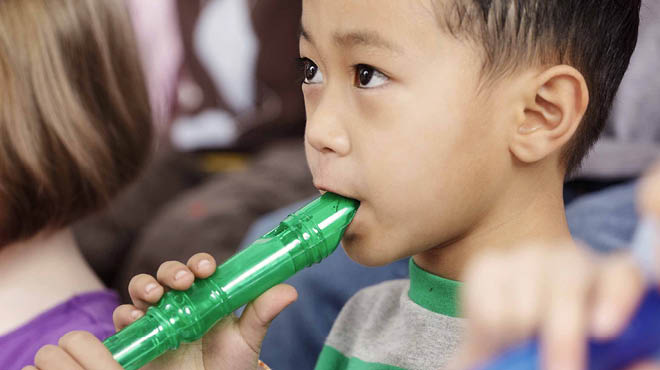Recent Posts
Don't miss a quiet symptom of concussion

Dizziness, headaches, confusion, fatigue, blurry vision and sensitivity to light are among the most common symptoms of a concussion. Once these symptoms have subsided and patients begin to resume their regular activities, they also may experience often-overlooked, underlying effects of concussion — persistent ringing in their ears, sensitivity to noise and hearing difficulties.
A concussion is a mild form of traumatic brain injury caused by an impact to the head. It can change brain cells, including those associated with hearing. Some of these changes will heal, while others are permanent.
Hearing can be affected in adults and children who have been diagnosed with concussions following common incidents such as a head injury from a fall, vehicle accident or riding a bike without a helmet. Other people, like athletes or military service members, can be affected due to their sports activities or professions.
How a concussion can affect your ears
Tiny hair cells line your inner ears. These hair cells are crucial for changing the energy from the vibrations of your eardrum and middle ear bones into electrical energy that can move through the nerves to the brain for processing.

Think of these tiny hair cells as blades of grass. When you step on the grass, some blades spring back up, while others stay flattened or broken. The hairs in your ears are the same. Those that are damaged by a concussion can't be regrown or repaired, and they can no longer send signals to the brain.
This damage to the hair cells can cause ringing in the ears — known as tinnitus — hearing loss, noise sensitivity and the inability to correctly process sounds, such as speech.
How a concussion can affect sound processing
Tiny nerve cells in the ears detect sounds and pass the signals to the brain, where the sounds are processed. Any injury to the nerve cells can disrupt this process. Those who have experienced a concussion may have difficulty distinguishing words in noisy environments, although their overall hearing may be fine.
Researchers have tested athletes who have had concussions, using a tool called Speech-in-Noise exams. The athlete listened to a simple sentence such as "Sugar is sweet." The phrase was repeated with increasingly loud background noise. Researchers found that the louder the background noise, the less able the athlete was to distinguish the words.
Other tests have revealed that athletes who have had concussions also may be hypersensitive to sounds or have difficulty processing rapidly spoken words.
Don't ignore hearing issues
People of all ages can experience concussions from various activities or as the result of an accident, including:
- Accidental falls
- Basketball
- Bicycling
- Car accidents
- Football
- Hockey
- Inline skating
- Skateboarding
- Soccer
- Volleyball
- Winter sports like skiing and sledding
If your child has experienced a concussion, once their major concussion symptoms have eased it's essential to take note if they comment about dizziness, ringing in their ears or having trouble hearing. Some of these symptoms may improve, while others may be permanent.
Hearing or sound processing issues may also show up as difficulty concentrating or new challenges with schoolwork.
Where to seek help
When seeking help for suspected hearing issues from a concussion, consider consulting an ear, nose and throat (ENT) specialist who can assess ear health and determine if any previous underlying conditions could be contributing to the symptoms.
An audiologist can assist with dizziness and balance issues, test hearing and provide tools and strategies for managing symptoms. In more severe cases, an audiologist may determine if hearing aids are needed and discuss options to address hearing issues.
Katie Dease, Au.D., is an audiologist in Audiology in Owatonna, Minnesota.






